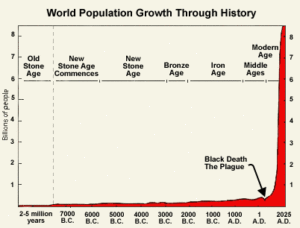
Perhaps no other Satanic Statement provides more illumination into the chaotic and confusing behaviour of the herd in our time than the Fourth, which is this: Satan represents kindness to those who deserve it instead of love wasted on ingrates!
It is of special importance to the people of Europe right now, who find their societies in states of social decay, perhaps even revolution. It looks as if Brexit will be followed by a wholesale shift to the right, with Geert Wilders’s PVV Party the short favourite at BetFair to win the Dutch election this year, and the French National Front and the German Alternative fuer Deutschland coming in every week.
Yes, all signs are that Europe is about to undergo one of its periodic cataclysms of violent hatred. This essay will argue that the primary cause for this is lingering brain damage caused by centuries of Christianity.
Much of the sentiment of recent years to open the borders stems from a misguided interpretation of the Christian admonition to be charitable. This explains why a picture of a drowned Syrian boy led directly to Angela Merkel (the daughter of a Lutheran minister) letting a million migrants into Germany, the reasoning being that it was cruel to deny these people a place of asylum from the horrors of war.
The responsibility for the integration of these people into their new societies was foisted almost entirely onto the European people. Merkel said Wir schaffen das!: we can do it. The migrants themselves were apparently not under any moral obligation to make an adaption to the German culture that they would soon be sharing space with, which was a very good deal for them by any historical standard.
Were they grateful?
How grateful does a woman appear if you give her sanctuary from the depredations of a cruel, male supremacist religion and then she walks around in a burka of her own free will? How grateful does a man appear if you give him sanctuary from others of his own culture and he refuses to learn how to communicate with those who gave him refuge? They certainly seem much less grateful than the majority of migrants, who do not do those things.
Because the Satanic Statements represent natural moral principles, it’s apparent that the general lack of gratitude on the part of the newcomers has naturally resulted in much of the anti-immigrant sentiment. That is to make the claim – shocking in today’s political environment – that not all of the difficulty in integrating tens of millions of foreigners in a short time can be put down to native racism.
If you love your enemy, then you love someone who wants to destroy those closest to you. This point cannot be underestimated. It is why Christians can never, ever be trusted – because if they love their enemies, and you are their friend, then they also love your enemies! So their religion will impel them to provide aid and succour to people trying to destroy you.
The truth is that hate, from a natural perspective, is adaptive. Hate keeps you safe! It is hate that prevents you from being led like a lamb to the slaughter. Hate is the emotion that keeps a people from being exploited or abused for too long, because, sooner or later, the fire of hate will burn too brightly to keep simmering and will strike out.
This is why the Abrahamic religions preach peace and love – this is the attitude they believe you, the slave, ought to take towards them, the masters! You can bet that “Don’t fight, don’t resist” is a choice phrase of paedophile priests for whispering into the ears of their victims.
The reason why the Fourth Satanic Statement is logical is because it accurately reflects reality, and therefore an attitude that is adapted to reality, in contrast to the suicidal masochism of Christianity.
Simply put, if you waste love on ingrates, you will not survive in this place. You have an intellectual obligation to determine who out of the many people you might know is genuinely worth cultivating a friendship with.
If this statement had been adhered to by the European ruling classes it may have been the better for the current migrant crisis. They might have foreseen that the mostly young adult male migrants were a poor choice of recipient for their limited resources, and perhaps would then have chosen to spend them on their own people, who, after all, built the country they live in.
Instead they chose to allow the native street cultures of their own working classes to be destroyed and replaced by foreign ones. Satanic wisdom may have saved them from the consequences of this decision.



